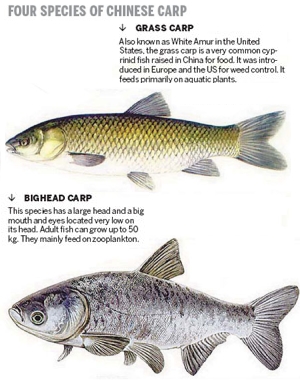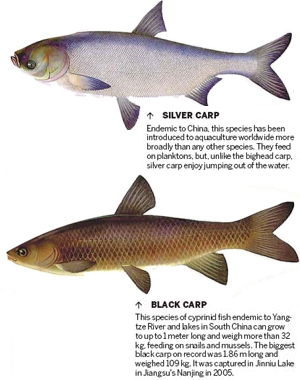Next Meeting – 31 May 2012
 We were to have had Bill Willmott talking on his recent visit to Chengdu, but have now plugged Bill in for our July meeting. This is because we will have a special visitor with us.
We were to have had Bill Willmott talking on his recent visit to Chengdu, but have now plugged Bill in for our July meeting. This is because we will have a special visitor with us.
Liu Guozhong is attending the Auckland conference, and is coming to Christchurch afterwards. He has graciously agreed to speak to us at our 31 May meeting.
He has been employed at Shandan Bailie School since 1989, and is currently a deputy principal of the school. During this time, he has visited New Zealand three times. He was the 2002 Rewi Alley scholar, and during 2009-11 completed a Masters degree in Agricommerce at Massey University, supported by a NZAID scholarship.
In China, he served as acting secretary-general of GungHo (ICCIC -International Committee for the Promotion of Chinese Industrial Cooperatives) in 2005-7, and has served as a manager, consultant, and trainer for NZCFS’ cooperative development projects in Gansu and Shaanxi Provinces, as well as with other international cooperative development projects.
He will talk to us about farmer cooperative development in Shandan and the North-west of China, including the NZCFS project contributions to this work. This is going to be a great talk!
Branch News
A Warm Welcome to New Members:
- Mr. Stephen Kennedy from Saint Thomas of Canterbury College
- Ms. Jeny Wong from Saint Thomas of Canterbury College
- Mr. Grant Hughes
Recent News from the April National Notebook
- The Photographers’ Tour arrived back last weekend, and Judy Livingstone, Tour Leader, said they had a great trip, with plenty of time to take photos and a few adventures along the way. Stories and photos next Notebook
- Auckland Branch is co-sponsor of an exhibition of more than 100 photographs celebrating Rewi Alley’s life. This opens at the Uxbridge, Howick’s Creative Centre on Thursday 17 May, the evening before our National Conference.
- A high ranking Go (Weiqi) team from China attended a New Zealand Go Tournament in Wellington over Easter to celebrate 40 years of diplomatic relations. They travelled to Hawke’s Bay for exhibition matches on Monday 9th April.
60th Brithday Tour 29 August to 24 September 2012
Celebrations in Shandan
One of the highlights for the 60th Birthday Tour will be celebrations in Shandan, Gansu, on September 12, combining the 70th anniversary of the Shandan Bailie School (SBS) and our 60th. Our Tour group will represent NZCFS and the SBS is organising VIPs from Shandan, Zhangye City and Gansu Provincial level dignitaries. Bailie Old Boys Secretary-General Yang Chunlin indicates there will be up to 100 old boys also coming.
Carl Worker, New Zealand Ambassador, Li Jianping, Deputy Director of Youxie and an honorary Principal of SBS, and Michael Crook, Chairman of Gung-ho, all plan to attend.
An afternoon seminar is planned with different aspects of our two organisations highlighted, and pointers as to where our relationship can take us in the future. In the evening, a banquet will be held, at which our NZCFS/Gung-ho International Award for the four best cooperatives from our projects in Shandan County, Zhangye City and Shaanxi Province will be presented. Both these occasions will showcase the Bailie School, our Friendship Society, and our joint project work and raise the profile of SBS and promote the value of cooperatives.
By honouring our past we find our future!
In 1964 the New Zealand China Society’s first newsletter included editorial comment by Bill Youren, Hawke’s Bay, on the refusal by the New Zealand Government to grant visas to two eminent Chinese scientists, highlights of the National Conference, Kathleen Hall’s account of her return visit to China, an extract from the Canadian Export Assn. Bulletin, China—Huge Sales for Someone. Why not us?, and Ruth and Douglas Lake’s experiences of living in Peking at that time.
Representatives from Auckland, Wellington, Christchurch and the newly formed Hamilton Branch attended the Conference. Highlights included: “Greetings from President Chu Tu Nan of the Chinese People’s Association for Cultural Relations with Foreign Countries that were heartily reciprocated; The National Executive was commended on the production of the pamphlet “China and World Peace”; Conference advocated the development of the teaching of Chinese language, literature and history in New Zealand Universities; N.Z. Government was reminded again of our desire to see formal recognition given to the People’s Government of China: Government was urged to support the seating of the People’s Government of China as the rightful occupant of the Chinese seat at the United Nations”. (Many thanks to Dale Curran, Bill Youren’s daughter, Napier, for the newsletter)
2012 Conference
The countdown is on and soon several of us will head to Auckland for what is promising to be a great conference, 18 – 20 May. Being our 60th anniversary, this conference always was going to be that little bit extra special. With the theme of “By honouring our past, we find our future”, the programme is certainly a full and exciting one with everything from a Keynote Speech by H. E. Mr Liao Hui, Vice Chairman of the National Committee of the Chinese People’s Consultative Conference “60+40=100 The view from China”, to a 1957 Inside Red China documentary, through to National President Eric Livingstone speaking on the theme of “How our past points the way forward”, a projects tour video and Bill Willmott speaking on the legacy of Rewi Alley. Watch for the report in June’s newsletter.
New Executive Director for Asia New Zealand Foundation
John McKinnon, a former Ambassador to China and currently Secretary of Defence, is to be the new Executive Director of the Asia New Zealand Foundation. He replaces Dr Richard Grant, who is retiring.
In announcing the appointment, Philip Burdon, Chairman of the Foundation, said that he was delighted to have found such a suitable person to take over the direction of the Foundation.
“John McKinnon comes to this position, not only with a strong record of management at the most senior levels of the public service, but also with a deep knowledge of Asia, particularly China, where he served as New Zealand Ambassador from 2001 to 2004.”
Mr McKinnon speaks and reads Chinese, having studied the language whilst in the Ministry of Foreign Affairs and Trade, and having twice been posted to Beijing. He has also had wide professional experience of dealing with other countries in Asia during his career, having been at one stage Deputy Secretary in the Ministry of Foreign Affairs and Trade responsible for Asia.
“There has never been a time when deepening New Zealand’s relations with Asia has been so important to New Zealand’s future”, Mr Burdon said. “The Foundation is the leading institution outside Government to promote New Zealanders’ engaging with the countries, cultures, and peoples of the Asian region. The future of this country is intimately connected to developments in this region. The Foundation is committed to supporting the Government’s initiatives in this area. John McKinnon will provide the right sort of leadership to continue the successful work of the Foundation.”
Mr McKinnon will take up his position on the completion of his term as Secretary of Defence later this year.
The Asia New Zealand Foundation, founded in 1994, is the leading public-private organisation in this country involved in increasing New Zealanders’ knowledge and understanding of Asia. It runs a series of programmes, both within New Zealand and in Asia, to help New Zealanders more directly face the challenges of the Asian century. More information about the Foundation can be found atwww.asianz.org.nz
China Daily Article – Battling Against the Current

 Operators of the Three Gorges Dam have, for the first time, added to the flows downstream to help the spawning of Yangtze River carp. Wang Ru reports.
Operators of the Three Gorges Dam have, for the first time, added to the flows downstream to help the spawning of Yangtze River carp. Wang Ru reports.
The Three Gorges Dam has regulated its water flow for the first time since being put into operation in August 2009 to allow for the spawning of Chinese carp. This marks a significant step toward minimizing the mammoth hydroelectric project’s ecological impact on the central and lower reaches of the Yangtze River. Over six days from June 16, the dam added 2,000 cubic meters per second to its daily discharge downstream in an attempt to mimic natural floods, which is crucial for the carp’s spawning. “It is a vital decision and a great opportunity to revive the endangered fish population in the Yangtze River,” says Chen Daqing, deputy director of Yangtze River Fisheries Research Institute under the Chinese Academy of Fishery Sciences (CAFS). About 60 percent of China’s freshwater fish come from the Yangtze River, with four species of Chinese carp (black, grass, bighead and silver carp) found mainly in this area.
But human activities, including over-fishing, shipping, pollution, wetland reclamation and waterway modification have decreased the fishery resources in the Yangtze River basin over the past 30 years.
“Chinese carp usually spawn in the Yangtze from the end of April until the beginning of July,” Zhao Yimin, division chief of the Yangtze Fishery Resources Commission (YFC), says. “But the Three Gorges Dam reservoir operates at a low water level from April to May every year, which has changed the conditions in the spawning sites, with an adverse impact on the reproduction of the carp.” Guo Qiaoyu, manager for the Yangtze River project from the China office of The Nature Conservancy (TNC), a US-based international conservation organization, says: “The fishes in the Yangtze River spawn in fast-moving rivers, and their eggs, which are slightly heavier than fresh water, only develop while drifting downstream, suspended by the turbulence.
“Without the turbulence, the eggs could die if they sink to the bottom.”
The carp also require other conditions, such as sustained water temperatures of between 18 C and 25 C, and specific water levels and flows. But ever since the Three Gorges Dam’s first water impoundment in 2003, the flows needed for Chinese carp have not been met.
Since the 1960s, there has been a 90-percent reduction in carp spawning.
According to the CAFS fisheries institute, there has been an observable decline of Chinese carp in the central Yangtze River. According to data collected in Jianli county on this stretch, the annual average amount of fish fry has declined from 2.524 billion between 1997 and 2003 (before the water impoundment of the Three Gorges Dam) to 42 million in 2009.
A popular delicacy in Chinese cuisine, the carp population in the region is an important indicator of the health of the local ecosystem.
“The decline is an indication of the urgency to protect and replenish the Yangtze’s most economically important fish,” Chen Daqing says.
The Yangtze River twists and turns 157 kilometers in the area of Jianli, an important breeding ground for various fish including the Chinese carp. In 2010, the Ministry of Agriculture established the national fishery resource reserve in Jianli for the Yangtze River carp.
To help prevent any further decline of fishery resources, the Changjiang Water Resources Commission (CWRC), CTGPC, TNC and World Wildlife Fund (WWF) are working together to implement a number of ecological guidelines. These include reconnecting rivers and lakes; aiding carp breeding by releasing fish fry, adult fish and live-bearing fish into rivers and making sure they have sufficient and timely water resources; and improving the Three Gorges Dam’s water flows.
On April 22, World Earth Day, more than 1,000 carp were released in Jianli, in Central China’s Hubei province. The carp would only start to spawn upstream when the water levels rose.
Many Jianli residents watched the fish release. While they had lived on fishing for generations, there are now too few fish to make a living. Most residents are working in factories and at docks.
Mimicking natural floods so the fish spawn has been tried successfully in the United States. As part of the project, TNC invited five experts on fish ecology from the US to work with Chinese researchers.
“According to our experiences on the Mississippi River, 70 percent of eggs of carp in the Yangtze River will die without proper hydrological conditions,” says James Garvey, professor of the department of zoology of Southern Illinois University.







